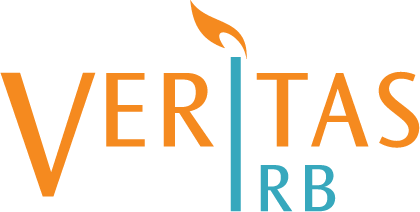Do you know what Voltaire and Stan Lee, the co-creator of Spiderman, have in common? Both of them have been attributed the authorship of the quote “With great power comes great responsibility”. Many variations of this quote have been used in discussing ethical issues pertaining to genetic research.
Pharmacogenomics and pharmacogenetics have led to novel approaches in drug discovery by identifying potential new drug targets and individualizing the application of drug therapies. Indeed, pharmacogenetics help us understand how genetics affects individuals’ drug responses and metabolism as well as potential adverse reactions. The promise of pharmacogenetics lies in its power to predict treatment outcomes based on a person’s genetic profile. The predictive potential of genetic information is of interest not only to science but also to third parties who may attempt to access an individual’s genetic testing results collected for research purposes through various means. Access to individual genetic information by third parties may cause research participants to become victims of discrimination.
The threat is real
The interest of third parties in accessing individual genetic information has been well documented and has been a growing concern for legislatures, governments, consumer protection agencies and human rights organizations. Such third parties may include family members, life and health insurers, employers, and private companies. The interest of these third parties lies in the potential for this genetic information to assist them with their healthcare decisions (family), to assess an applicant’s risk (insurers), to limit workplace injuries (employers), or to develop new-targeted products (private companies).
As a result of this third party interest, there is a public concern about discrimination on the basis of genetic information. While several countries, including the United States, have limited, prohibited, or introduced moratoria on the use of genetic information by insurance companies and employers, Canada still has not adopted such legislation. The Office of the Privacy Commissioner (OPC) of Canada, however, urged the life and health insurance industry in July 2014 “to expand its voluntary moratorium, that currently calls on its members to refrain from asking applicants to undergo genetic testing, to also refrain from requesting access to existing genetic test results until such time as they can be shown to be demonstrably necessary and effective.”
The United States Genetic Information Nondiscrimination Act of 2008 (GINA) provides basic protection against discrimination by health insurers and employers based on genetic information. It also limits the use of genetic information by health insurers and employers to specific circumstances. It is important to note that GINA does not protect against discrimination for life, disability, or long-term care insurance. Some states, however, provide additional protection against genetic discrimination that covers life, disability, and long-term care insurance.
Although debates as to whether there have been documented cases of genetic discrimination are still on-going, several empirical studies have demonstrated that the fear of genetic discrimination may impact a research participant’s consent to genetic research. Researchers should therefore address this issue when soliciting participation in pharmacogenetic research.
Disclosing socio-economic risks of pharmacogenetic research
As a researcher or sponsor of research, you have the responsibility to disclose all reasonably foreseeable risks associated to the research. This duty is not limited to physical risks and includes also social, economical and psychological risks.
Although there is no clear criteria or evidence on how genetic research results may have utility for insurance underwriting, or the evaluation of employment occupational requirements, research participants may not be aware that they may have to disclose to their insurer or employer their research results or participation to genetic research. Therefore, until both Canadian and American stakeholders have adopted comprehensive laws, policies or moratoria restricting the use of genetic research results, the potential use of these results by third parties such as insurers or employers must be disclosed as a reasonably foreseeable socio-economic risk of genetic research. Both the U.S. Office of Human Research Protections (OHRP) and the Canadian Interagency Panel on Research Ethics (PRE) provided guidance to that effect.
What does the future hold?
We can expect that genetics and pharmacogenetics will become much greater facets of our healthcare strategies in the future and that genetic information will also impact the medical decisions we make for ourselves. The possibilities that genetic research could create for improving health are seemingly limitless. The predictive power of genetics, however, also creates great responsibilities with regards to how genetic information is accessed and treated. There is thus a dire need for policy action in order for individuals to have the level of confidence necessary to share their sensitive information. As mentioned in a recent article, if research participants were to systematically cease to participate in genetic research projects in order to avoid any negative impact on their insurability or employment, this would potentially stifle research and innovation.


